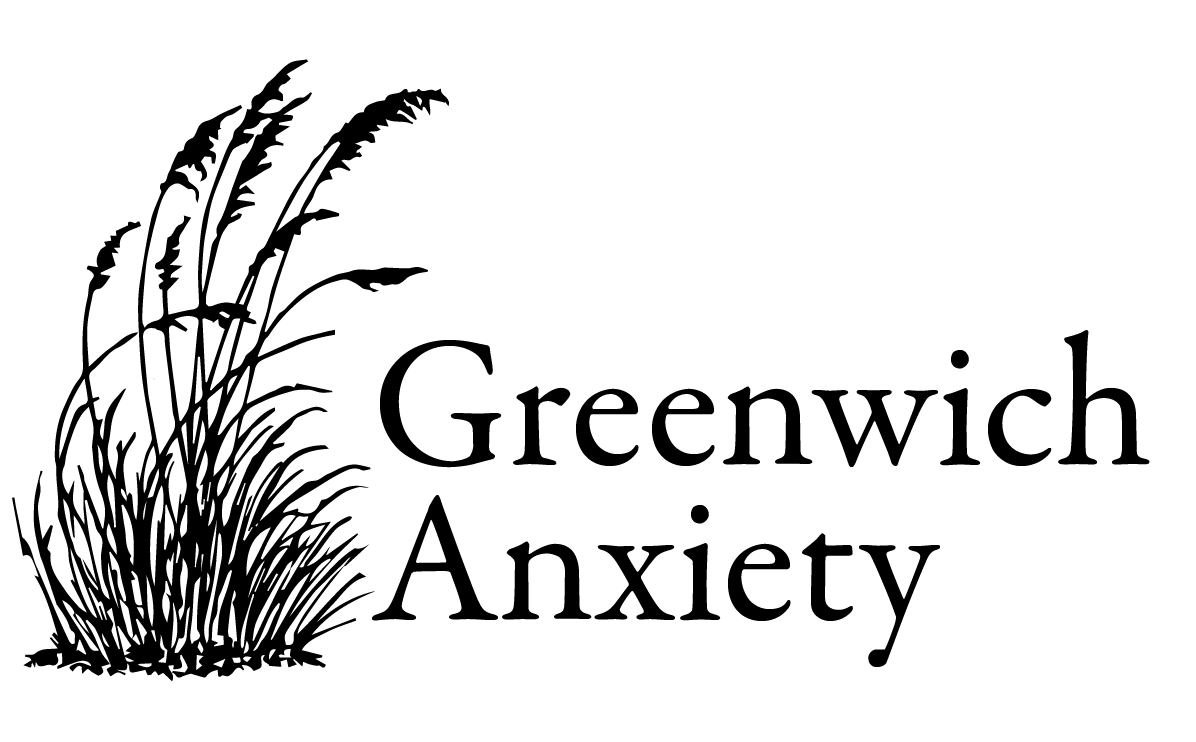OCD Treatment for Children
Child OCD Treatment Specialists in Greenwich, CT
Obsessive-Compulsive Disorder (OCD) is a mental health disorder that affects children and adults alike. It’s characterized by unwanted and intrusive thoughts (obsessions) that lead to repetitive behaviors (compulsions). These obsessions and compulsions can interfere with daily activities and cause significant distress.
Types of OCD
There are several types of OCD, including:
- Contamination OCD: Fear of germs or dirt, leading to excessive cleaning or hand-washing, etc…
- Symmetry OCD: Need for things to be symmetrical or perfect, leading to repetitive arranging or rearranging.
- Harm OCD: Fear of causing harm to oneself or others, leading to checking behaviors.
- Unwanted Thoughts OCD: Persistent unwanted or taboo thoughts, leading to mental rituals or avoidance behaviors.
Understanding the various types of OCD is important not only for diagnosis but also for determining the most effective treatment plan. Each type of OCD presents its own unique challenges and may require specific strategies for management and recovery. In some cases, a child may experience symptoms that overlap multiple types, complicating the picture further. However, with the right professional guidance and support, each type of OCD can be managed effectively, helping children regain control over their thoughts and actions, and return to their normal daily activities. It’s crucial to remember that there’s no ‘one-size-fits-all’ approach in dealing with OCD, and at Greenwich Anxiety, we’re committed to providing personalized, compassionate, and effective treatment tailored to your child’s specific needs.

Causes of OCD
The exact cause of OCD isn’t known, but it’s believed to be a combination of genetic, neurobiological, and environmental factors. Certain life events, such as trauma or stress, can also trigger OCD symptoms in children who are predisposed to the disorder.
Despite the complexities surrounding its causes, it’s essential to remember that OCD is a treatable condition. At Greenwich Anxiety, we focus on addressing the specific symptoms and challenges your child is facing, leveraging evidence-based treatments to help them regain control and improve their quality of life.
Symptoms of OCD
Some common observable symptoms of OCD in children that parents may notice include:
- Excessive hand washing or cleaning
- Repeatedly checking on things, such as locks or appliances
- Compulsive counting
- Arranging or ordering things in a particular way
- Avoiding germs or dirt
- Confessing to unwanted or taboo thoughts
Why Choose Greenwich Anxiety?
At Greenwich Anxiety, we believe in providing targeted and compassionate care for children struggling with OCD. Here’s why you should consider us for your child’s OCD treatment:
Specialized Care: Our focus is solely on treating OCD and related disorders in children. This specialization enables us to provide the most relevant and effective treatment options.
Experienced Professionals: Our team is led by Dr. Specht, who has extensive experience in the field of child psychology and has been instrumental in developing and administering innovative treatments for OCD.
Evidence-Based Treatments: We use scientifically-backed treatments like Cognitive Behavioral Therapy (CBT) and Exposure and Response Prevention (ERP), which have been shown to have lasting changes in the brain and significantly improve the quality of life for those suffering from OCD.
Personalized Approach: We understand that each child is unique and so are their needs. We adopt a personalized approach to treatment, tailoring our therapy and intervention strategies to suit your child’s specific symptoms and challenges.
Comfortable Environment: We provide a safe, non-judgmental space for your child to express their feelings and fears. We encourage them to proceed at their own pace, ensuring they are comfortable throughout the treatment process.
Parental Involvement: We believe in the importance of involving parents in the therapy process. We provide regular updates and guidance to parents to help them support their child at home.
We’re committed to helping your child navigate their OCD journey and leading them towards a healthier, happier life. If you have any questions about our approach or services, please don’t hesitate to get in touch with us.
Tips for Helping Your Child with OCD
Supporting a child with OCD can be a challenging journey, but your help can make a significant difference. Here are some tips to assist your child:
Educate Yourself and Your Child: Understanding OCD is the first step to managing it. Educate yourself about the disorder and explain it to your child in an age-appropriate way.
Encourage Open Communication: Encourage your child to talk about their feelings and obsessions. It’s important they know they can turn to you without fear of judgment.
Practice Patience: It’s important to be patient with your child. Remember, they don’t want to have these obsessions or compulsions any more than you want them to.
Promote Healthy Habits: Balanced eating, regular physical activity, and adequate sleep can help manage OCD symptoms.
Reinforce Therapy Lessons: Reinforce the skills your child is learning in therapy at home. This may include participating in exposure and response prevention (ERP) exercises
Remember, every child is unique and what works for one child may not work for another. It’s important to work with a healthcare provider to develop a tailored strategy for your child.
Our Approach to Childhood OCD Treatment
At Greenwich Anxiety, our approach to treating OCD in children is guided by evidence-based practices. Our primary treatment is Cognitive Behavioral Therapy (CBT), specifically a type called Exposure and Response Prevention (ERP). ERP involves gradually exposing children to their OCD triggers, helping them resist the urge to carry out their compulsive behaviors and teaching them healthy coping strategies. This approach is gentle and gradual, and children are encouraged to proceed at their own pace.
While we don’t prescribe medications, we often consult with a patient’s prescriber to coordinate care and ensure that a medication regimen is appropriate and effective. We help patients and their families navigate the often difficult task of finding an appropriate prescriber, and finding the correct medication regimen that is effective and minimizes side effects. Far too often, patients are not prescribed the appropriate medications or are prescribed a cocktail of medications. This is more likely to occur when prescribers are less experienced with treating a condition like OCD. As such, we often collaborate with other providers to ensure that they have the piece of mind our expertise provides.
FAQs
What is OCD?
OCD, or Obsessive-Compulsive Disorder, is a mental health disorder characterized by recurring, unwanted thoughts, ideas, or sensations (obsessions) that make a person feel compelled to engage in repetitive behaviors or mental rituals. These rituals and obsessions interfere with daily activities and cause significant distress.
How is OCD diagnosed in children?
OCD is typically diagnosed through a comprehensive evaluation by a mental health professional. This evaluation involves detailed interviews with the child and parents, observation of the child’s behavior, and the use of standardized assessment tools to evaluate the presence and severity of OCD symptoms.
Can OCD be cured?
While there’s no known cure for OCD, it’s a highly treatable condition. With appropriate and ongoing treatment, including cognitive-behavioral therapy (CBT) and medication, most children with OCD can achieve substantial relief from their symptoms.
How does Exposure and Response Prevention (ERP) work?
ERP is a type of CBT that’s highly effective for treating OCD. It involves gradually exposing the child to the thoughts, images, and situations that make them anxious, and helping them to develop healthier responses that don’t involve engaging in compulsive behaviors.
What medications are used to treat OCD?
Certain medications, including Selective Serotonin Reuptake Inhibitors (SSRIs), have been found to be effective in treating OCD. However, medication is typically considered as part of a comprehensive treatment plan that also includes CBT.
How can parents help a child with OCD?
Parents can play a crucial role in their child’s treatment by providing emotional support, encouraging their child to adhere to the treatment plan, and collaborating closely with the healthcare providers. It’s also helpful for parents to educate themselves about OCD and its treatments.
OCD often results in parents feeling like they need to make accommodations for the patient’s anxiety. These accommodations, which are initially small requests by the child (e.g. please wash your hands before you make my sandwich) and appear to alleviate anxiety in the child, unfortunately lead to an escalating series of requests that ultimately worsens the anxiety and leads to poorer outcomes. This is just one of the challenges of parenting a child struggling with OCD. A growing body of research suggests that outcomes are maximized when caregivers are provided expert guidance on how best to respond to their child’s symptoms.
Does OCD go away on its own?
OCD is a chronic condition that typically doesn’t go away without treatment. While symptoms may wax and wane over time, it’s important to seek professional help if OCD symptoms are causing distress or interfering with your child’s daily activities.
How common is OCD in children?
OCD affects about 1 in 100 children, making it a relatively common mental health disorder in this age group. It can occur in children of all ages, although it’s more commonly diagnosed in adolescents.
Can a child with OCD lead a normal life?
Absolutely. With the right treatment and support, children with OCD can manage their symptoms and lead fulfilling, productive lives. The goal of treatment at Greenwich Anxiety is to help children regain control over their symptoms so they can return to their regular activities and pursuits.
What's the difference between normal worry and OCD?
Everyone experiences worry and has habits or routines. But for people with OCD, these thoughts and behaviors are so severe that they interfere with daily life. Unlike typical worry, obsessions in OCD are unwanted, distressing, and difficult to control. And unlike normal routines, compulsions in OCD are time-consuming, distressing, and performed in response to obsessions or rigid rules.
What level of care is appropriate for treatment?
Most individuals can be effectively treated on an outpatient basis. Outpatient care is suitable for a wide range of medical and mental health conditions, including mild to moderate cases. It allows patients to receive necessary treatment, consultations, and therapy without being admitted to a hospital. With the convenience of outpatient care, patients can maintain their daily routines and benefit from specialized services.
Managing Mental Health in School
All About IEP Evaluations & Essential Support for Your Child While it is summer vacation and kids are on break from school, for parents with children facing mental health issues, school is likely at the forefront of their minds. Navigating the educational...
Parental Involvement in Teen Mental Health
Being a teenager in 2024 is not easy. Adolescence comes with unique stresses their parents did not face growing up. From the overwhelming pressure to succeed to the grueling schedules that don’t allow for ample rest, relaxation, and unstructured fun, youth mental...
The Impact of Social Media on Teen Mental Health
Social media is part of most American teenagers’ daily life. From Instagram and TikTok to YouTube, studies show that up to 95% of youth ages 13–17 report using a social media platform, with more than a third saying they use social media “almost constantly.” ...
Talk With Us
WE LOOK FORWARD TO HEARING FROM YOU. A MEMBER OF THE Greenwich Anxiety TEAM WILL RESPOND BACK WITHIN 24-48 HOURS UPON RECEIVING YOUR MESSAGE.





